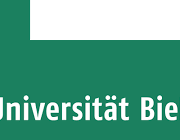Submitted by Marcel Weber (University of Geneva).
EASPLS 2020
Call for Applications
Sixth European Advanced School in the
Philosophy of the Life Sciences (EASPLS)
“Dealing with complexity in the life sciences”
Konrad Lorenz institute for Evolution and Cognition Research (KLI),
Klosterneuburg (Austria), September 7–11, 2020
Event website: https://kli.ac.at/en/events/all_events/view/550
Directors: Guido Caniglia (KLI) & Marcel Weber (University of Geneva)
The European Advanced School in the Philosophy of the Life Sciences (EASPLS) consortium will hold its sixth biennial summer school on “Dealing with Complexity in the Life Sciences” at the Konrad Lorenz institute for Evolution and Cognition Research (KLI) in Klosterneuburg near Vienna. Young scholars (PhD students and early post-doctoral researchers) in the history, philosophy and social studies of the biological, biomedical, and environmental sciences are invited to apply. The registration fee is €350. The summer school will cover lunches and the opening dinner at the KLI. Participants will take care of their own accommodation and travel expenses. For updates and more details see: https://www.kli.ac.at/en/events/event_calendar/view/550.
Application
Applications should be sent to the following email address: easpls2020@kli.ac.at. Please send a single pdf file (labelled: LastName-Firstname-easpls2020.pdf) containing:
- Letter of motivation (max 500 words)
- Title and Abstract (max 500 words) for a poster
- Short Curriculum Vitae (max 3 pages)
The deadline for applications is February 28, 2020. Applicants will be notified of decisions by late May 2020.
What is the EASPLS?
The European Advanced School for the Philosophy of the Life Sciences is a biennial event that aims at fostering research, facilitating collaborations, and provide professional training for students in the field of the philosophy, history, and social studies of the life sciences, broadly conceived. EASPLS is organized by a consortium of the following European top-level institutions in the area of philosophy, history and social studies of the life sciences:
- Centre for Ethics and Philosophy of Science (CEPS), Institute of Philosophy; Leibniz University Hannover, Germany
- Centre for Philosophy of Science, Department of Philosophy, University of Geneva, Switzerland
- Conceptual Biology & Medicine group (ImmunoConcEpT lab); CNRS & University of Bordeaux, France
- Egenis, the Centre for the Study of Life Sciences; University of Exeter, UK
- IAS Research Centre for Life, Mind and Society; University of the Basque Country, San Sebastian, Spain
- Institute for the History and Philosophy of Science and Technology (IHPST); University of Paris 1 Panthéon-Sorbonne, France
- Konrad Lorenz Institute for Evolution and Cognition Research (KLI), Klosterneuburg, Austria.
Format
EASPLS is characterized by its unique format. The summer school includes different forms of participation and aims to foster structured interactions among participants and between participants and senior researchers. The schedule mixes:
- Inputs and discussions led by senior researchers in the consortium on the topic “Dealing with Complexity in the Life Sciences” (Readings will be circulated in advance).
- Inputs and discussions from two guest researchers in the philosophy of the life sciences.
- Group work addressing questions related to the topic “Dealing with Complexity in the Life Sciences”.
- Roundtable discussions and activities tailored to professional development (e.g. Publishing in the field; Preparing for an interview; etc.)
- The selected participants will bring a poster that will stay in the rooms of the Summer school for the whole duration of the event. Participants will present their posters in the form of short 3 minutes presentations for the rest of the people at the summer school.
Host Institution and Accommodation
EASPLS 2020 will be held at the Konrad Lorenz Institute for Evolution and Cognition Research in Klosterneuburg, a small town about 15min by train from Vienna. The KLI is an independent center of advanced studies in the life and sustainability sciences.
The mission of the KLI is to enable scientific reasoning that can contribute to understanding and sustaining life in its biological, cognitive, social, and cultural diversity. The institute is committed to contribute addressing pressing challenges of our time through inter and transdisciplinary research. The KLI is “A Home to Theory that Matters” and supports conceptual and formal research as well as philosophical and historical work that addresses broad and interrelated questions about: How and why has life evolved? And how is it evolving in the present and into the future? How can we sustain life on earth to meet the need of current and future generations within the limits of the natural world? What roles has cognition played in the evolution of life and what roles can it play in its future developments?
The KLI is located in the historical Kremsmünsterhof, a cultural heritage monument where workshops, symposia, and summer schools are hosted. It provides a stimulating and creative environment for fellows, visiting scholars, students, and external faculty (get an impression of the last EASPLS at: http://bit.ly/2cM9AWU).
Options for Accommodation in Vienna and surroundings
Vienna and Klosterneuburg offer plenty of options for accommodation. If you are interested in the more affordable ones, please, take a look at the following links:
Topic of EASPLS 2020: “Dealing with complexity in the life sciences”
Complexity, from genomes to ecosystems, is a fundamental characteristic of living systems. In dealing with complexity, the life sciences have developed over the centuries a wide range of epistemological and methodological approaches as well as social and institutional configurations to organize and perform scientific work. The goal of this summer school is to bring together senior and junior researchers in the philosophy of life sciences to jointly reflect on and discuss:
- Epistemological and methodological issues in relation to complexity. We will look into the many practices developed in the biological, biomedical, and environmental sciences, in order to deal with the complexity of life. For instance, we will address the many roles that experiments, data, theories, models as well as heuristics, explanations or visualizations have played in the development of the life sciences.
- Ontological and metaphysical issues in relation to complexity. We will discuss issues related with complex causation in living systems, mechanistic constitution, process thinking as well as modularity and robustness as ways to understand the main characteristics of living systems in the biological, biomedical, and environmental sciences.
- Institutional, societal, and political dimensions of scientific work dealing with complexity. We will discuss social-organizational issues that emerge in relation to scientists’ various approaches to deal with complexity in the biological, biomedical, and environmental sciences. For instance, we will talk about the emergence of inter and transdisciplinary research centers and consortia; the different -omics; different configurations of sharing research materials and results; real-world laboratories at the science-society interface or big-data labs from medicine to sustainability science.
- The role that historians and philosophers of the life sciences can play in critically contributing to support scientific attempts to deal with complexity in the biological, biomedical, and environmental sciences.
Using examples from past and current science, during the summer school, we will analyze and reflect together on experimental, conceptual, and theoretical practices and strategies that scientists from different disciplines in the life sciences have created when dealing with complex living systems. The organizers aim to assemble a community of scholars addressing these issues from a wide variety of perspectives and whose research focuses on wide diversity of topics in the life sciences broadly conceived. The following areas of work serve to illustrate the sorts of issues that are in focus for the summer school, but it should be emphasized that EASPLS 2020 welcomes inputs and ideas that are not limited to the issues mentioned below.
Historical and current examples of dealing with complexity in disciplines and fields such as:
-
- Evolutionary biology and systematics, e.g. phylogenetic inference, evolutionary developmental biology.
- Developmental biology, e.g., whole-organism lineage tracing
- Genetics and genomics, e.g., genome-wide association studies, integrative data-clustering
- Clinical research, e.g., randomized controlled trials, real-world evidence
- Cancer research, e.g., tumor typing.
- Public Health, e.g. decision-making, policy-making
- Personalized medicine e.g. diagnostic tool, interventions, and drug development.
- Molecular and systems biology, e.g., gene regulatory networks.
- Synthetic biology and genome editing
- Conservation sciences, e.g. systematic conservation planning and biodiversity.
- Climate change research, e.g., simulations, forecasting, scenarios, visioning.
- Sustainability science, e.g. transdisciplinary projects, real-world experimentation.
Senior Researchers and Guest Lecturers
Instructors at EASPLS 2020 will come from all the institutions of the Consortium:
- Guido Caniglia (co-director)
- John Dupré
- Philippe Huneman
- Maël Lemoine
- Sabina Leonelli
- Thomas Reydon
- Isabella Sarto-Jackson
- Jon Umerez
- Marcel Weber (co-director)
In addition to instructors from the consortium, we are delighted to announce that Sara Green (University of Copenhagen) and Federica Russo (University of Amsterdam) will be joining the summer school as Invited Guest Lecturers.



















